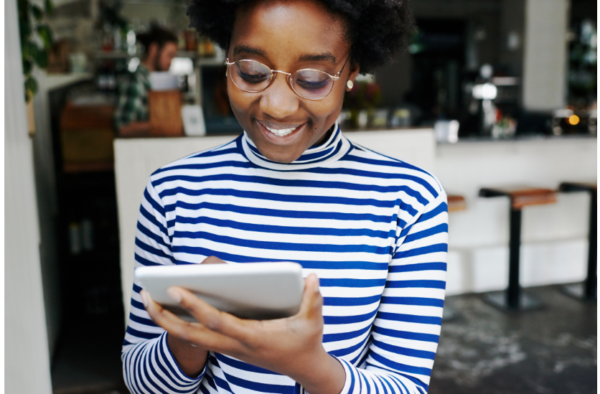Social Media, Loneliness and Connection - MHAW 22

The theme of this year’s Mental Health Awareness Week is loneliness, so Service Manager at Community Links’ intermediate mental health hostels, Ben Joslin, has shared some thoughts on connectivity online, along with some tips on how to manage your usage and to get the best out of social media.
Connecting online:
As the theme of the week highlights, we all need social interaction and social media can help maintain our relationships. Not all families live together and being able to communicate with your older brother on a gap year, or your auntie who moved to Australia can be a strong wellbeing protector. During the covid pandemic, social media proved to be a lifeline for many people living alone and the majority of our social interactions became completely online.
Social media can also help us to form new connections. For example, many young LGBTQ people especially those growing up in a small town or rural area social media can send messages of support and solidarity – they can connect with other LGBT people in a way that was simply not possible historically. This creates feelings of validation and that they are not alone. Experiencing meaningful social connections is a crucial way to combat loneliness and social media can act as a solution to this natural human craving.
The darker side of social media:
Although social media can reduce feelings of loneliness, it is important to be aware of its darker side. The interactions we have online are not always positive – individuals are given a platform to abuse, bully or ‘troll’ others – often with little consequence due to the anonymous nature of some social media sites. In this case, social media can do the opposite of make us feel connected, and in fact lead to intense feelings of isolation.
Addiction or dependency on social media, potentially as a substitute for other kinds of social interactions, is something that can impact many of us to varying degrees. The need for social media ‘likes’ on gains on your reputation can be very compulsive. Not receiving the response your expected can in turn negatively impact your mental health and lead to feelings of low self-worth. This can then potentially impact of peoples sleep routines due to the fear of missing out.
Although social media connecting is helpful for some people it is not a replacement for in person connections. We miss a lot of nonverbal cues via theses platforms than can lead to relationship breakdowns and misunderstandings.
Taking a break:
Overuse of social media can leave little time for other more meaningful activities which cannot be replaced. For example, accessing nature, physical activities which positively impact mental health and general self-care, and getting the sleep you need!
Taking a week away from social media might be a bigger step than some are willing to follow, so below are some ideas to try if you want to reduce your social media use.
Some helpful tips to help manage your social media usage:
- Set a minimum time of 15 minutes between connections
- Do without your mobile at certain times of the day (mealtimes, when you’re catching up with loved ones, or when watching a film)
- Switch off automatic notifications
- Put your mobile on silent and wear a watch as an alternative to checking the time on your phone – to avoid temptation
- Set a minimum time each day for completely offline activities such as sport, reading or listening to music
- Cut down your number of social media friends
- Delete unnecessary apps and WhatsApp groups
For support for cyber bullying, visit:
https://www.supportline.org.uk/problems/cyber-bulling/
Search the hashtag #MentalHealthAwarenessWeek online to get involved in the conversation.


